By the second week of my residency in Brighton, myself and my collaborative partner Juss Heinsalu, have begun to explore ideas around the possible evolution of non biological life forms, of moving away from the centering of the human experience for defining life, de-anthropomorphism. We are examining how life forms at the edge, struggling to survive, fighting for every opportunity to exist, procreate, to become a permanent part of an ecosystem.
As humans now live on a precipice, it is 100 seconds to midnight, our very existence is challenged, we wonder how a non human defined entity might try to communicate with us, perhaps a warning of the affects of our behaviour, perhaps they have already warned us, and the slow geological time of communication means we have not heard this communing that has been attempted over thousands of years. We have as Foucault defined, a need to order things, with humans at the top defining and categorising all other forms of life and non living things. Yet our presence here is a matter of seconds in geological time, and while it seems our impact is exponentially greater than it should be for a fragile species, perhaps another entity can remind us that we are a willow the whisp, a trace that might not leave a mark for anyone to explore if we erase our own existence. Perhaps the very earth, stone, soil, rock, shell, that we stand on is/has already warned us.
Our first experiments are to examine the life of soil, sand, rock, remembering how definitions, categorisations of life have changed, evolving with human understandings of what constitutes a biological life form, for example coral as a living breathing life form, a forest as not a space of single trees, but a biodiverse system, mycelium, which connects and communicates and interacts with different species.
Next stages are to give voice/resonance to this communication from geological time, think the Ents and Entish, “You must understand, young Hobbit, it takes a long time to say anything in Old Entish. And we never say anything unless it is worth taking a long time to say.” Lord of the Rings
This research project is funded and supported by i-Portunus and the Ceramic House


